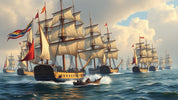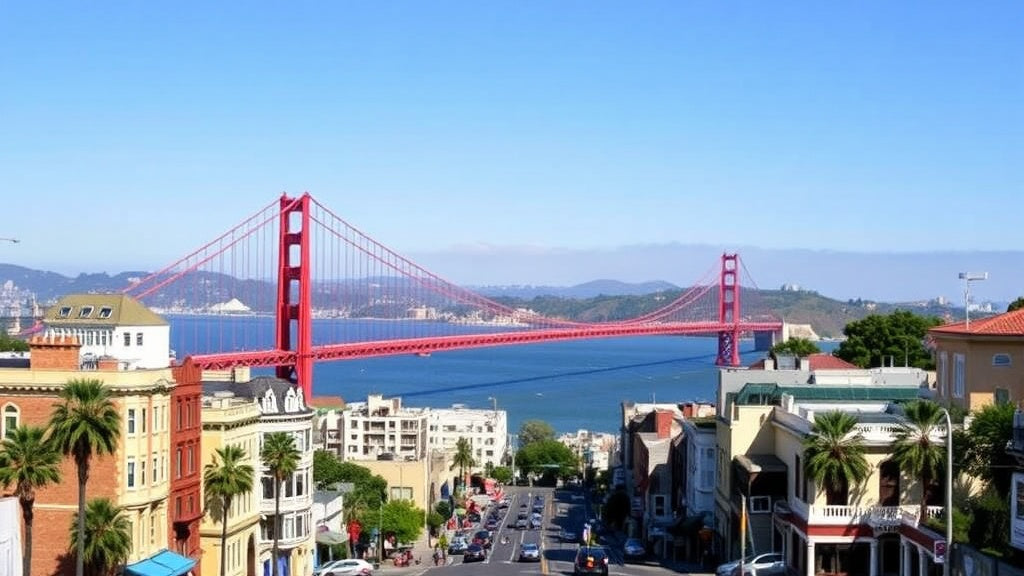
"Unveiling Nelson's Naval Mastery: The Epic Battle of the Nile and Its Lasting Legacy"
, by Unboxify, 8 min reading time

, by Unboxify, 8 min reading time
In 1792, the French Revolution ignited a European conflict that would rage for a generation. This struggle for mastery of Europe—and the world—was fought on land and at sea, in a war of constantly shifting alliances. From the tumult, one of the enduring rivalries that emerged was between France and Britain. While Britain could not challenge France on land, the seas were a different matter entirely. Britain's Royal Navy was as dominant on the waves as Napoleon was on land. In an age of skilled naval commanders, one man stood out: Horatio Nelson.
Bold, inspiring, and brilliant, Nelson became a national hero and legend for the British. His exploits in the French Revolutionary Wars garnered him a reputation that only grew stronger with time. By 1798, the sixth year of the French Revolutionary Wars, France was on a relentless winning streak. General Bonaparte's victories in Italy forced Austria to sue for peace, and Spain had switched from being an enemy to an ally. Britain remained the only major power resisting the French Republic.
Unable to invade Britain directly due to its naval superiority, the French government decided to strike indirectly by sending an expedition led by General Bonaparte to conquer Egypt. Their aim was to destroy British influence and trade in the region, thereby delivering a significant blow to their last major enemy. The British, alert to the developments, dispatched Rear-Admiral Nelson with three ships-of-the-line to investigate a large French fleet assembling at Toulon.
Navigating through challenging gales, Nelson was initially driven south just as the French fleet, consisting of 13 ships-of-the-line and several frigates, set sail. However, Nelson correctly deduced that Egypt was their likely destination after learning that the French had captured Malta. Racing to intercept, Nelson’s faster ships barely missed the French fleet in the foggy night. Unfortunately, Nelson's squadron reached Alexandria too late, missing Bonaparte's fleet by just 24 hours.
The French fleet anchored at Aboukir Bay and, unbeknownst to Nelson, had landed in Egypt, marking the beginning of their inland march to the famous Battle of the Pyramids. Meanwhile, Nelson, having learned of the French fleet's position a month later, returned to Alexandria on August 1st. He quickly located the French fleet and readied for an attack. The French were commanded by Admiral Francois-Paul Brueys d’Aigalliers, a seasoned leader known for his personal courage and strategic caution.
Admiral Brueys positioned his fleet defensively, anchoring it in Aboukir Bay. With 13 ships-of-the-line and four frigates anchored in a line just under a mile from shore, their western flank protected by shoals and shallow waters, Brueys issued orders to secure each ship to its neighbor with heavy cables, forming what he hoped would be an unbreakable line.
Determined to engage and obliterate the French fleet, Nelson saw a high-risk attack as a strategic necessity. Destroying the French fleet would leave Bonaparte's army stranded in Egypt far from home in a hostile climate, effectively thwarting the entire expedition without a single British soldier setting foot ashore. Nelson, commanding 13 third-rate ships-of-the-line, one 50-gun ship, and a small sloop, devised a plan to capitalize on the French defensive strategy.
Nelson's night attack aimed to take advantage of Brueys' caution. The British fleet would advance along the seaward side of the French line, attacking primarily the French flagship, L’Orient. With favorable winds preventing the remaining French ships from joining the battle, Nelson's fleet would face only half the French force at any given time. The approach began at 6 p.m. under full sail, led by HMS Goliath.
HMS Goliath, followed by HMS Zealous and HMS Audacious, led the charge. The British navigated meticulously, avoiding shoals and other obstacles. Captain Foley of HMS Goliath made a critical decision to exploit a gap between the French ships and the shoals, allowing a line of British ships to sail down it. This maneuver caught the French off guard, particularly since Admiral Brueys had not prepared for an attack from that direction.
HMS Goliath fired a raking broadside into Guerrier, with the following British ships repeating the action. As the British assault intensified, HMS Orion sought a wider track to avoid the melee and ended up confronting the French frigate Sérieuse. Conventionally, ships-of-the-line would not fire on frigates during fleet actions, but Sérieuse's captain breached this unwritten code, prompting Orion to retaliate fiercely, obliterating the enemy frigate.
The British landward column anchored to engage the French vanguard while Nelson's seaward column, led by HMS Vanguard, targeted the French from the opposite side. Ships like HMS Vanguard, Minotaur, and Defence took on individual French ships, enveloping them in a double-sided assault. However, not everything went according to plan. HMS Bellerophon, meant to engage Franklin, overshot and ended up battling the far more formidable L’Orient. The British ship suffered heavy losses, forcing her to drift out of the line of fire.
At around 8:30 p.m., two late-arriving British ships, HMS Swiftsure and Alexander, entered the fray, breaking the enemy line and pouring devastating fire into L’Orient. Despite a wound to his forehead, Nelson returned to command after a quick patch-up by the ship's surgeon. Brueys, grievously injured, refused to abandon his post and eventually succumbed to his wounds on deck.
As night fell, Guerrier and Spartiate, under relentless attack for over two hours, surrendered. HMS Leander, having ceased efforts to tow Culloden, joined the battle and raked Peuple Souverain and Franklin. Nelson’s bold strategy started to show its effectiveness as Aquilon, and several other French ships struck their colors. As flames engulfed L’Orient, ships on both sides took emergency measures. The impending explosion of the French flagship made the battle’s outcome evident.
At 10 p.m., the fire reached L’Orient's grand magazine. The resulting explosion obliterated the ship, killing most of its crew and causing a brief pause in the fighting as both sides gaped at the horror. British ships lowered their boats to rescue survivors while continuing the assault. After the explosion, the French morale plummeted, and the outcome seemed inevitable.
As firing resumed, HMS Swiftsure and Defence forced the surrender of Franklin. The remaining French ships, unable to maneuver effectively, drifted helplessly. The next morning revealed the scale of the destruction. The entire French vanguard had been captured or destroyed, with many ships running aground in their attempt to escape the explosion. Only a few French ships and frigates managed to flee, including the Generaux and Guillaume Tell. British casualties were significantly lower, with three ships badly damaged but still operational.
In terms of lives lost, the French suffered approximately 1,700 killed and over 3,000 taken prisoner, while British losses amounted to 218 killed and 678 wounded. The British captured or destroyed nine French ships-of-the-line, sinking two frigates in the process. Nelson's stunning victory shifted the balance of naval power in the Mediterranean dramatically in Britain’s favor, impacting General Bonaparte's entire Egyptian campaign by isolating his forces and cutting off their supplies. The French garrison in Malta would also surrender, making the island a British protectorate.
Nelson's role in this pivotal battle brought him unprecedented fame and recognition. He was celebrated in royal courts across Europe and rewarded with jewels, ceremonial swords, and a long-coveted peerage as Baron Nelson of the Nile. The Battle of the Nile is often cited as one of the most decisive and impactful naval battles in history, showcasing Nelson’s tactical brilliance and audacity. However, his crowning achievement and the battle most synonymously linked with his name would occur seven years later, off Cape Trafalgar.
The Battle of the Nile is a stunning example of how innovative strategy and bold leadership can shift the tides of history. Horatio Nelson's daring attack not only altered the course of the French Revolutionary Wars but also established a legacy that continues to inspire. His actions during this epic battle exemplified the very best of naval warfare and strategic acumen, cementing his place as one of history's greatest military commanders.
We hope you’ve enjoyed this deep dive into one of the most fascinating episodes of naval warfare. Stay tuned for more riveting historical content that brings the past to life, shedding light on the pivotal moments that shaped our world.






